Photo: John Parra/Getty Images
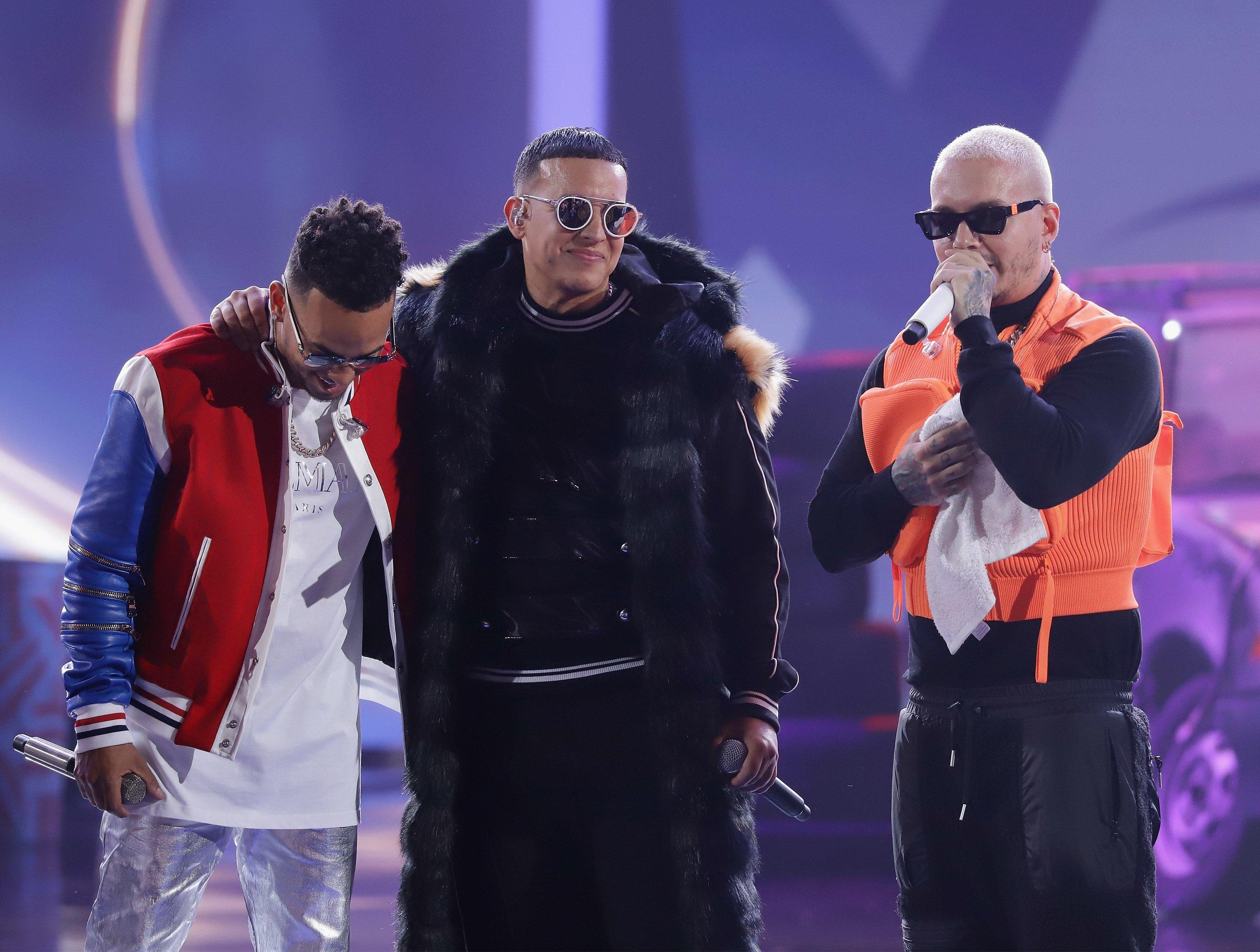
Ozuna, Daddy Yankee and J Balvin
news
Ozuna, J Balvin & More Pay Tribute To Daddy Yankee At Premio Lo Nuestro
Yankee, whose career trajectory was honored with an award, performed his greatest hits including "Gasolina," Rompe" and "Lo Que Pasó, Pasó" alongside J Balvin, Ozuna, Yandel and more
Latin urban music stars came together on Thursday (Feb. 21) to pay tribute to GRAMMY-nominated and Latin GRAMMY-winning reggaeton icon Daddy Yankee at the Premio Lo Nuestro awards show in Miami.
Yankee, whose career trajectory was honored with the Lifetime Achievement Award, performed his greatest hits including "Gasolina," Rompe" and "Lo Que Pasó, Pasó" alongside J Balvin, Ozuna, Yandel, Zion y Lennox and De La Ghetto.
"I, my friends, my collegues first, the world thanks you," Latin GRAMMY winner Balvin said onstage after the performance, not reading from the teleprompter, but saying words from his heart. "Without Daddy Yankee reggaeton would not be the same in the world ... J Balvin wouldn't exist without Daddy Yankee."
<blockquote class="twitter-tweet" data-lang="en"><p lang="es" dir="ltr">Reggaeton hecho historia: <a href="https://twitter.com/hashtag/PremioLoNuestro?src=hash&ref_src=twsrc%5Etfw">#PremioLoNuestro</a> reunió a los más grandes en un show con mucha 'gasolina' <a href="https://t.co/Y6nXa2qtrZ">https://t.co/Y6nXa2qtrZ</a> <a href="https://t.co/ECfmeRdtnC">pic.twitter.com/ECfmeRdtnC</a></p>— Premio Lo Nuestro (@premiolonuestro) <a href="https://twitter.com/premiolonuestro/status/1098945643542908928?ref_src=twsrc%5Etfw">February 22, 2019</a></blockquote>
<script async src="https://platform.twitter.com/widgets.js" charset="utf-8"></script>
Balvin continued: "A lot of the time we wait for people to leave this world to tell them how great they are, I'll take this moment to tell you face to face, thank you for what you have done for us."
Yankee thanked his fans and his "veteran" and "new generation" colleagues. "This is for you. Our genre has grown because there is unison, there is a brotherhood," he said. He also had encouraging words for his native Puerto Rico, sharing that anyone can be a positive vessel for change, no matter where they come from.
Reggaeton won big at the awards, which celebrate talented performers in Latin music: Ozuna took nine awards including Male Artist Of The Year, Balvin took the Premio Lo Nuestro Artist Of The Year award for the third consecutive year and urban artist Natti Natasha took home four awards including one for her collaboration with Becky G.
A full list of winners can be found on the Premio Lo Nuestro website.
Behind The Board: Producer Teddy Walton On Working With Kendrick Lamar & What Makes A Great Track
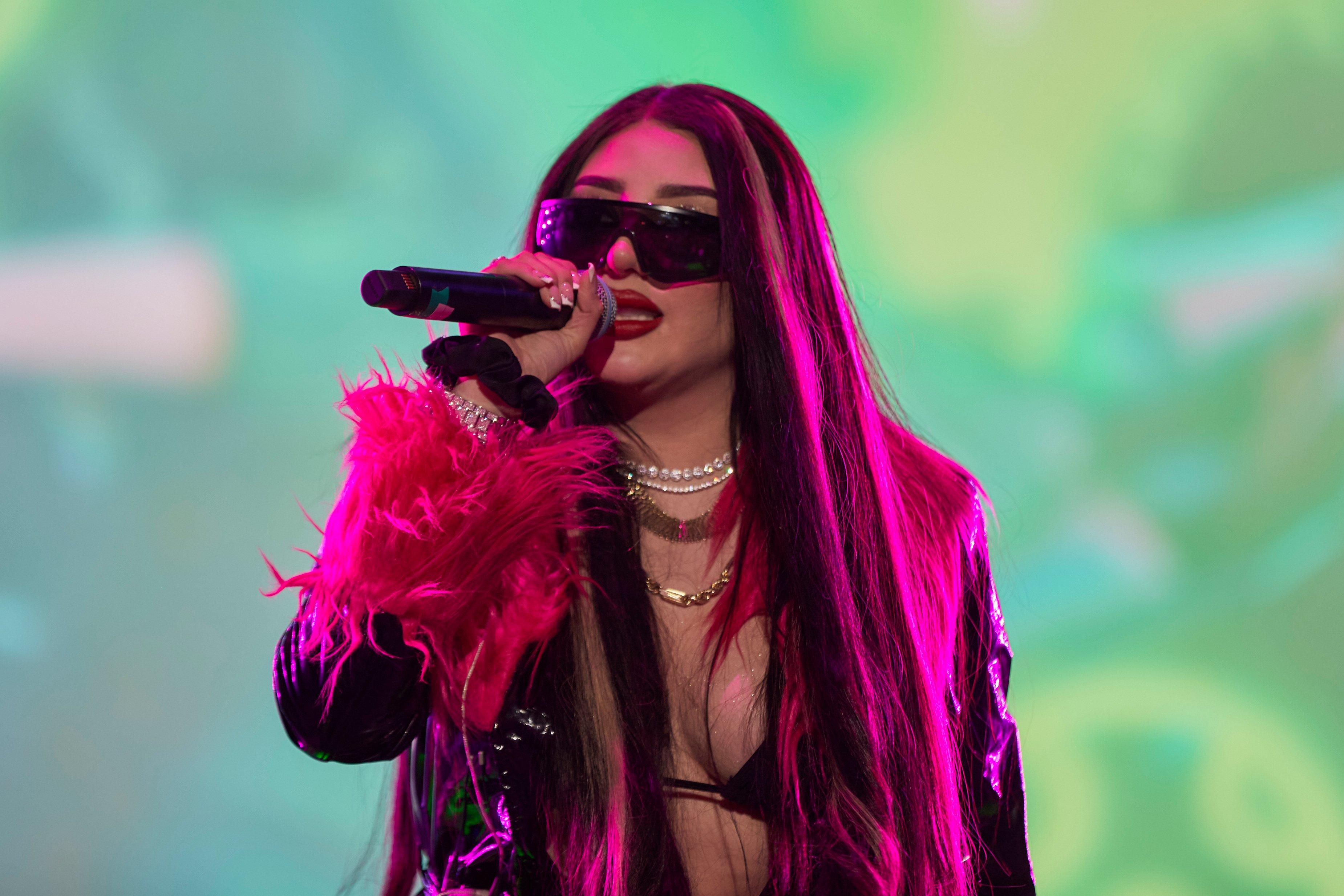
Photo: Jaime Nogales
list
7 Artists Bringing Reggaeton Mexa To The World: El Malilla, Bellakath & More
Pulling from the genre's underground roots in Puerto Rico, these fast-rising reggaeton Mexa artists infuse their own culture and grit into a globally-appealing sound.
Música Mexicana isn't the only sound of Mexico that's blowing up; the country's artists are now starting to make their mark in reggaeton. Imbued with the essence, swagger, and lingo of Mexico, reggaeton Mexa is the next big Latin sound that's going global.
Originating in the Caribbean, reggaeton evolved from Panama’s reggae en español and Jamaican dancehall of the 1980s. Puerto Rican acts like DJ Playero and DJ Nelson shaped the sound of reggaeton in the island's underground scene during the '90s, while Daddy Yankee, Tego Calderón, Don Omar, and Ivy Queen pushed the genre into the mainstream at the dawn of the new millennium.
Boricua acts Tainy, Bad Bunny, and Ozuna pushed reggaeton into the next decade, though Colombia also brought about the genre's second wind. J Balvin's success solidified Medellín as a reggaeton hotbed, spawning Maluma, Karol G, and Feid as global stars.
Learn more: The Sonic And Cultural Evolution Of Reggaeton In 10 Songs
In the 2020s, Mexico is becoming the next hub for reggaeton as artists who grew up listening to the Puerto Rican OGs — as well as Mexican acts Ghetto Kids and Pablito Mix — are now putting their own stamp on the genre. In late 2022, Bellakath put a spotlight on reggaeton Mexa with her viral hit "Gatita"; the following year, Yng Lvcas took the sound to new heights with his "La Bebé" remix featuring Peso Pluma, which reached No. 11 on the Billboard Hot 100 chart.
Reggaeton Mexa pulls from the genre's underground roots in Puerto Rico, infusing its songs with Mexican culture and grit. Lyrics are full of Mexican slang that reflect life in the barrios.
"Reggaeton Mexa is reminiscent of the sounds of the '90s and 2000s from Puerto Rican DJs like Playero and Joe," El Mallila, one of the reggaeton Mexa leaders, tells GRAMMY.com. "The songs, the beats, and rhythms are more or less similar to that flow. The difference here is the Mexican jargon. Reggaeton Mexa is spicy. We play with Mexican profanities without being offensive."
The emerging genre has gained traction among the larger reggaeton community with Jowell y Randy, Maldy, and J Balvin recently featuring on their songs. Following the success of Yng Lvcas, Bellakath, and El Malilla, Mexican acts like Peso Pluma (who dedicated part of his Éxodo album to reggaeton) and pop star Kenia Os are embracing the wave. As the tide continues to rise for reggaeton Mexa, GRAMMY.com is highlighting seven of the sound's leading artists.
Yng Lvcas
Guadalajara, Jalisco native Yng Lvcas noted that no one around him could name a Mexican reggaeton artist, so he decided to fill that void.
An early encounter would make for auspicious beginnings. As he was signing a record contract with Warner early last year, Yng Lvcas crossed paths with Peso Pluma. The música Mexicana star's first foray in reggaeton was with Yng Lvcas and their global hit, a sensual remix of "La Bebé." Their collaboration became the first reggaeton song by Mexican artists to enter the Hot 100 chart.
Last October, Yng Lvcas released his album Super Estrellas to put a spotlight on more reggaeton Mexa acts. The LP included songs with El Malilla and El Bogueto. Puerto Rican OG Maldy later teamed up with Yng Lvcas for the hypnotic "Diviértete."
Bellakath
The first artist to get the global conversation started about reggaeton Mexa was Bellakath. After earning a law degree from the National Autonomous University of Mexico, the Mexico City native became a social media personality. Bellakath leveraged her following to start her music career, which exploded in late 2022 with the frisky "Gatita." The song went viral on TikTok and the music video has over 144 million views on YouTube.
In the male-dominated reggaeton Mexa scene, Bellakath is continuing to keep women on top. Last year, she released her debut album Kittyponeo with the hit "Reggaeton Champagne" featuring Dani Flow. After signing with Warner in May, Bellakath dropped "Sandunguea," which sampled the reggaeton classic "Mayor Que Yo" by Luny Tunes. On July 15, Bellakath released her second album, Sata 42, where she ventured into dembow music with artists from the Dominican Republic.
Learn more: 5 Women Essential To Reggaeton: Ivy Queen, Natti Natasha, Karol G, Ms Nina & Mariah Angeliq
El Malilla
El Malilla proudly represents the chakalones (Mexican slang for "bad boys") in reggaeton Mexa. Hailing from Valle de Chalco, El Malilla remembers his first encounter with reggaeton as a teen came from the pirated CDs that were sold at the tianguis, or open-air markets.
Now, El Malilla is bringing Mexico's version of reggaeton to the forefront. He recently released his debut album ÑEROSTARS, which includes his viral hit "B de Bellako" with Yeyo. Back in May, Puerto Rican OGs Jowell y Randy jumped on a remix of the quirky banger.
El Malilla also wants to make reggaeton Mexa more inclusive. Reggaeton has historically excluded LGBTQIA+ folks, though queer artists such as Young Miko, Villano Antillano, and La Cruz are changing that tune. On the Mexican front, El Malilla wanted to be an ally to his queer fans with the 2000-inspired "Rebote" music video, which was shot at the gay club Spartacus with Mexican drag queens.
Within his album, El Malilla is also stretching the bounds of his artistry by exploring merengue in "Coronada" and experimenting with house music in "Todo Tiene Su Final." "ÑEROSTARS is a call to all the reggaeton Mexa artists to dare themselves to make new music and try different sounds," he says. "Don’t stay in your comfort zone just making perreo."
Yeri Mua
Veracruz native Yeri Mua is keeping a high heel firmly planted on the neck of the genre, holding it down for the women in reggaeton Mexa.
Mua started out doing makeup tutorials on YouTube and later grew a massive social media following. Last year, she launched her music career on Uzielito Mix's reggaeton romp "Línea del Perreo," which has over 103 million streams on Spotify. In songs like "Chupon," Mua brings a fierce femininity to reggaeton Mexa while flipping the genre's explicit lyrics from a woman's perspective. In April, Kenia Os tapped Mua and Ghetto Kids for her reggaeton Mexa banger "Mamita Rica." With a laugh, Os told GRAMMY.com at the time, "[Mua] sounds very sexy and makes noises like meowing. It felt very great to work with her." Last month, Mua signed a record contract with Sony Music México.
El Bogueto
Alongside El Malilla, El Bogueto is one of the OGs of reggaeton Mexa. The Nezahualcóyotl native has scored a number of hits since 2021, including "Tu Favo" and "G Low Kitty," which has nearly 60 million streams on Spotify.
The title of El Bogueto's 2023 debut album Reggaetoñerito is an amalgamation of the words reggaetonero and ñero, which is Mexican slang for a person from the hood. El Bogueto has continued to rack up millions of streams with his LP, which include hits like the freaky reggaeton romp "Piripituchy" and "Dale Bogueto." In May, J Balvin gave his co-sign to El Bogueto and the reggaeton Mexa scene when he jumped on an all-star remix of "G Low Kitty."
Yeyo
Among the artists on this list, Yeyo is the freshest one on the reggaeton Mexa scene, but he's fast becoming one of the genre's brightest stars and the go-to artist for a hit collaboration. The Zacatepec, Morelos native is a protege of Ghetto Kids' Luis Díaz, who also serves as his manager.
Yeyo's playful and infectious flow as a Mexican reggaetonero has translated into million of streams in songs like "B de Bellako" with El Malilla and "Mami Chakalosa" alongside Bellakath. He has also flexed a romantic side to his distinct voice in Ghetto Kids' recent hit "En El Ghetto #5 (La Discoteca)." Yeyo has also shined on the electronica-leaning reggaeton of "Maldad" and the sensual "Tentación."
Uzielito Mix
Many of the songs mentioned in this list wouldn't have been possible without Uzielito Mix. Following in the footsteps of Ghetto Kids and Pablito Mix, the Mexico City-based producer has become the backbone of the sound of reggaeton Mexa. Uzielito Mix produced Yeri Mua's hits like "Línea del Perreo" and "Brattiputy." He also co-produced El Bogueto and El Mallila's "G Low Kitty" with DJ Rockwell, which J Balvin later hopped on.
In his stellar collaborations, Uzielito Mix is known for uniting many of the reggaeton Mexa stars. He continues to push the sound of the genre into the future like in the spooky "Espantan" remix with El Bogueto, Alnz G, Dani Flow, and Tensec. In 2022, Bad Bunny tapped Uzielito Mix to open his World's Hottest Tour stops in Mexico City.
The Latest News About Latin Music
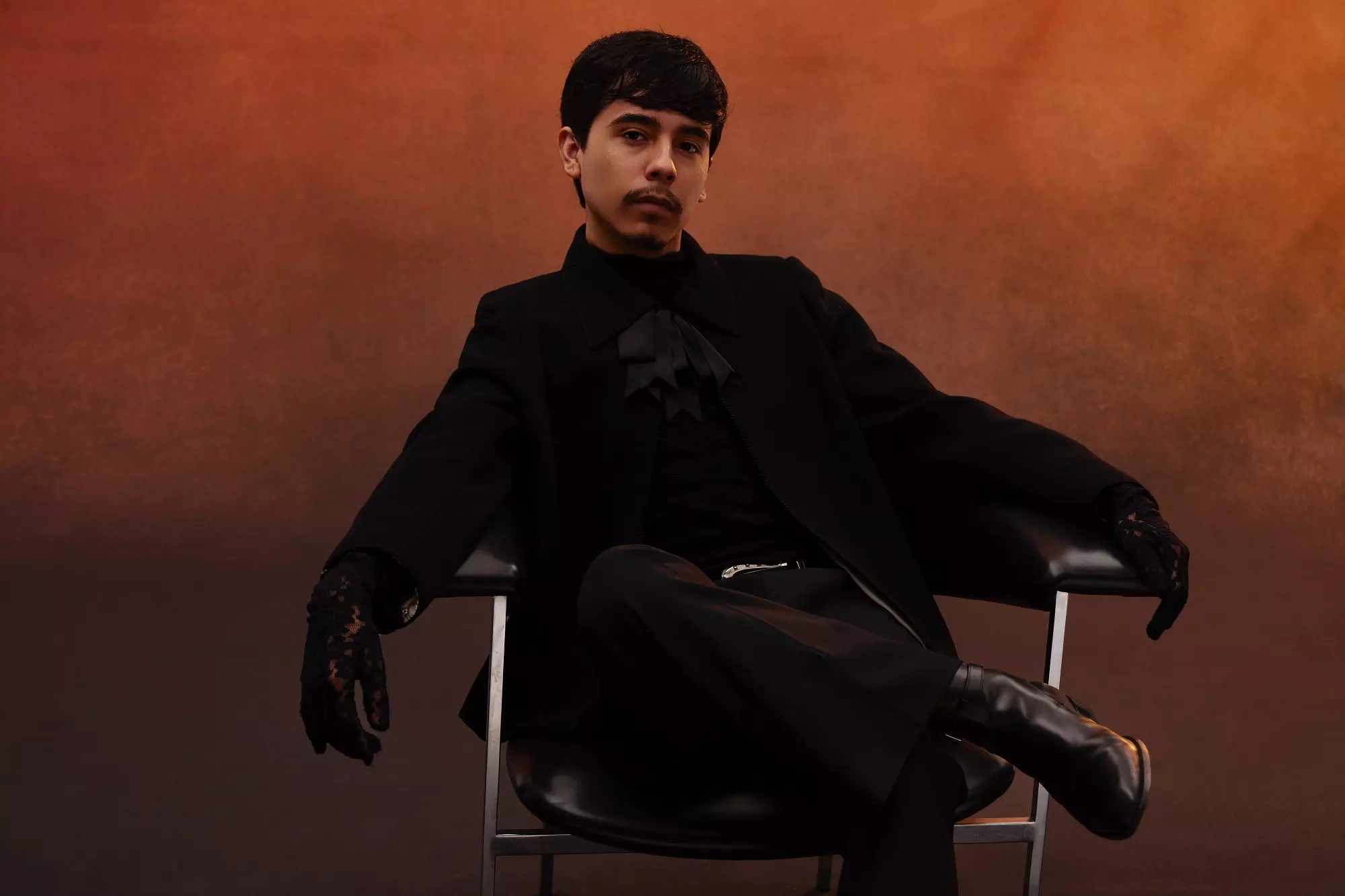
On 'Mirada,' Ivan Cornejo Redefines The Sound Of Sad Sierreño And Helps Fans Heal Through Music
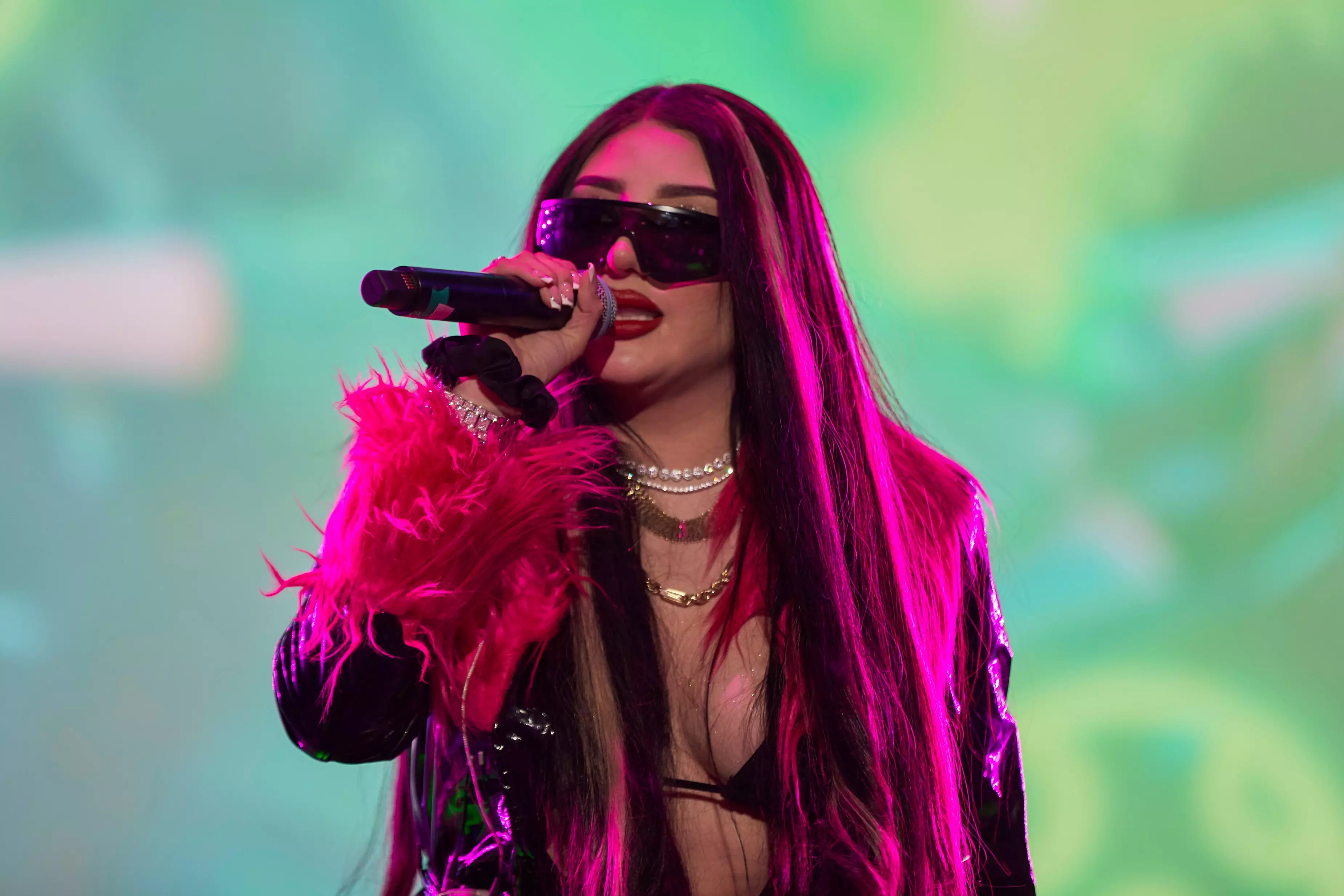
7 Artists Bringing Reggaeton Mexa To The World: El Malilla, Bellakath & More
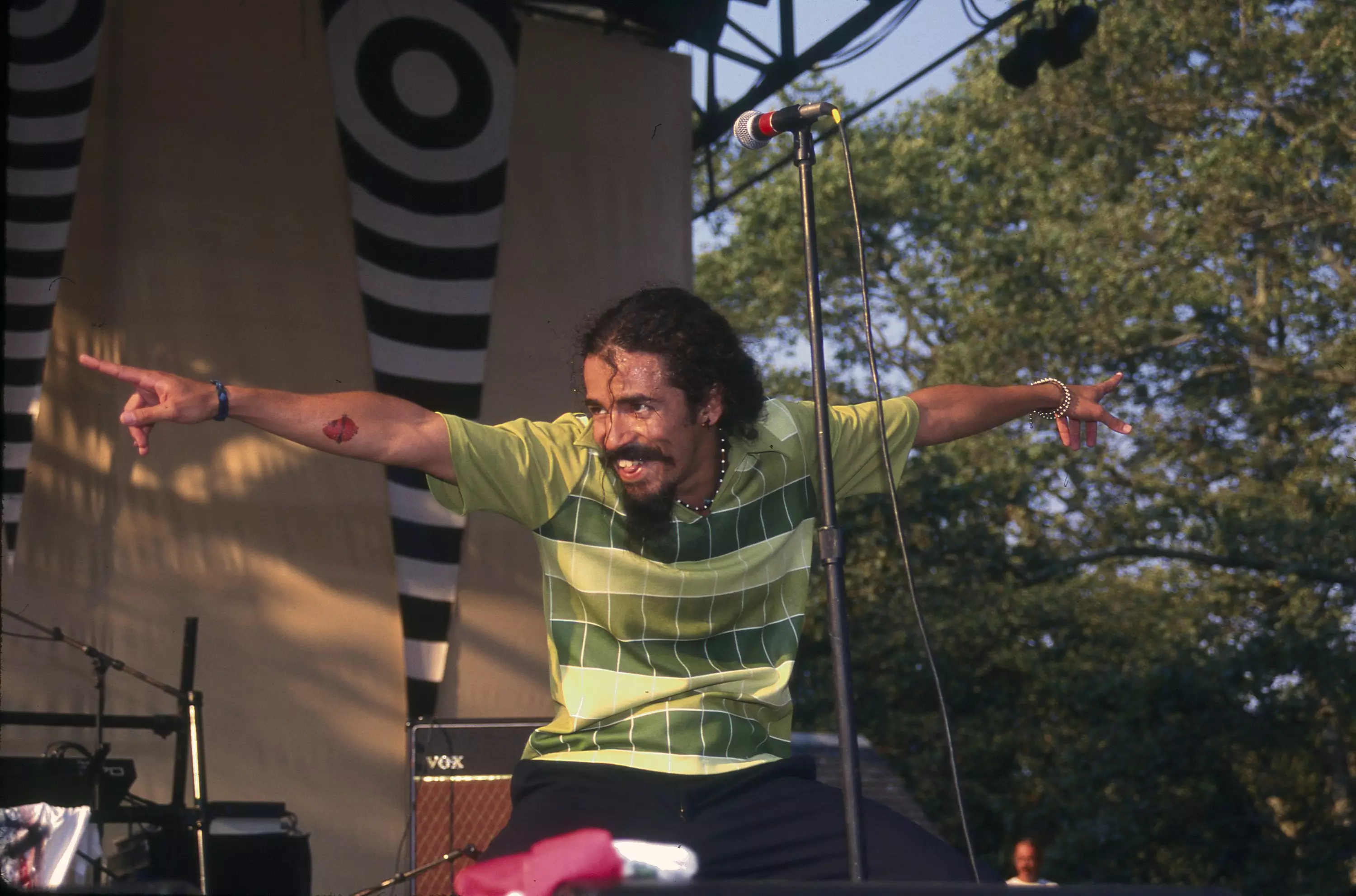
Revisiting 'Re': How Café Tacvba’s 1994 Masterpiece Changed Mexican Music Forever
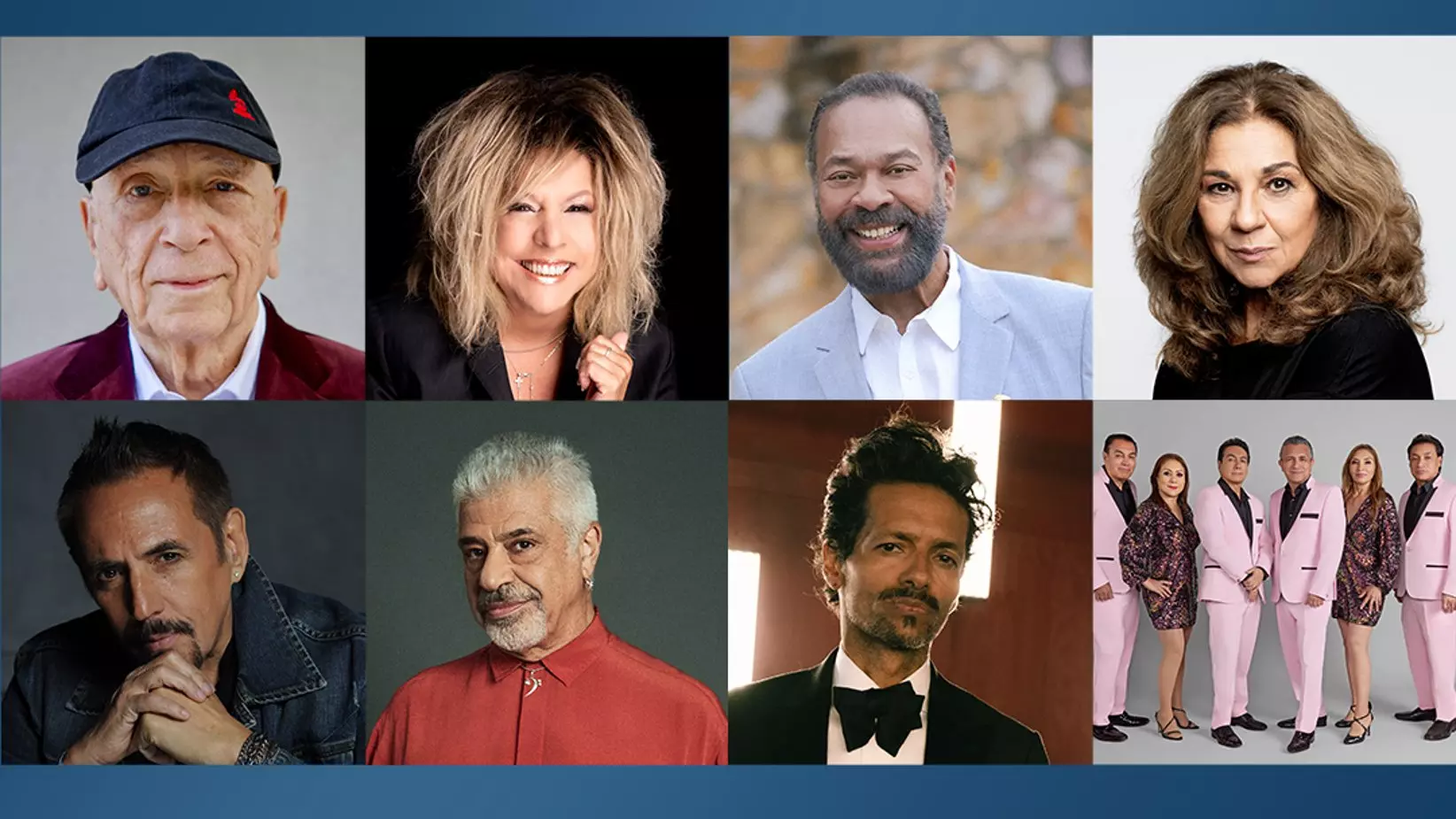
The Latin Recording Academy Announces 2024 Special Awards Recipients: Los Ángeles Azules, Draco Rosa, Albita, Lolita Flores & More
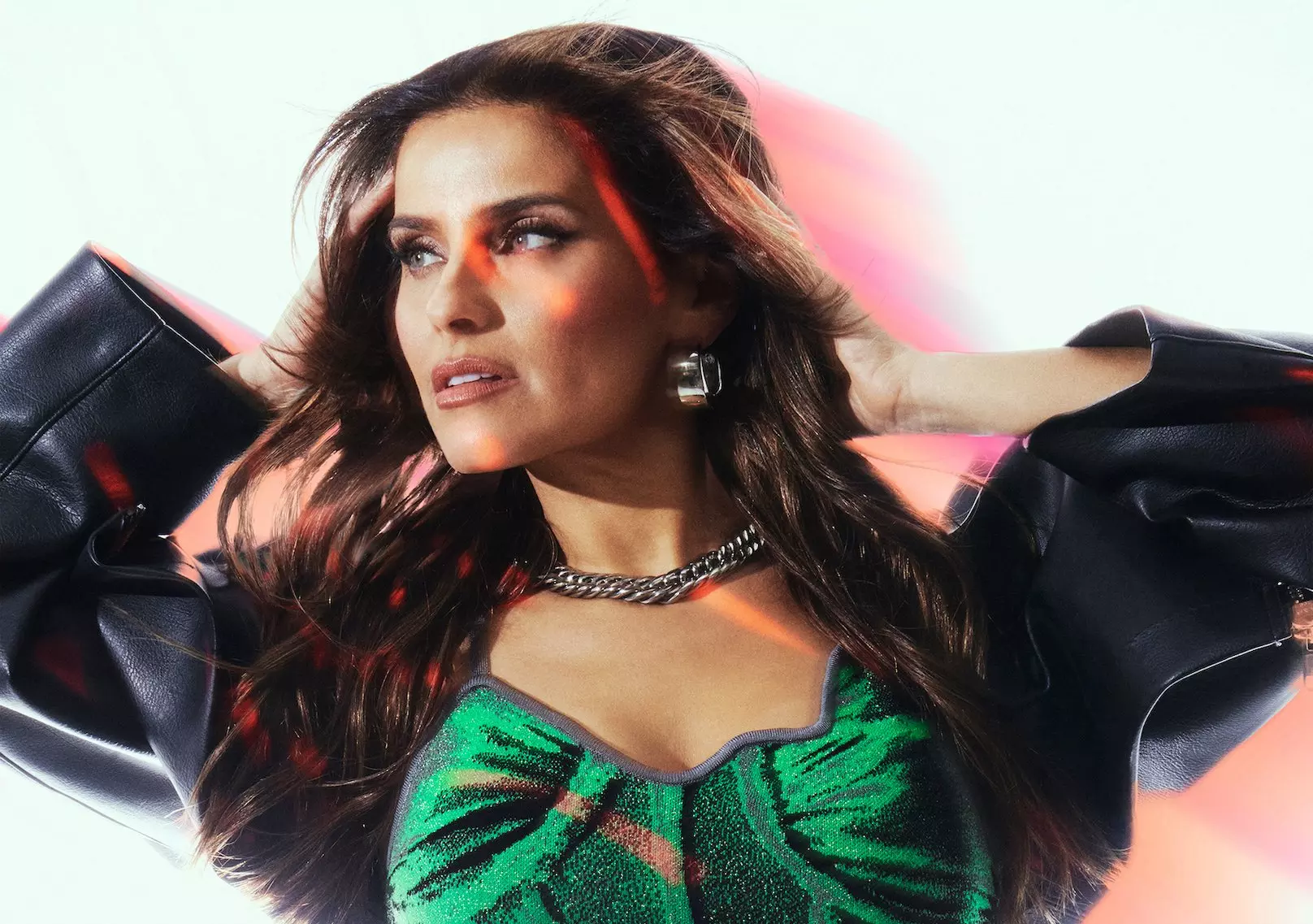
Nelly Furtado On How Remix Culture, ADHD & Gen Z Inspired Her New Album '7'
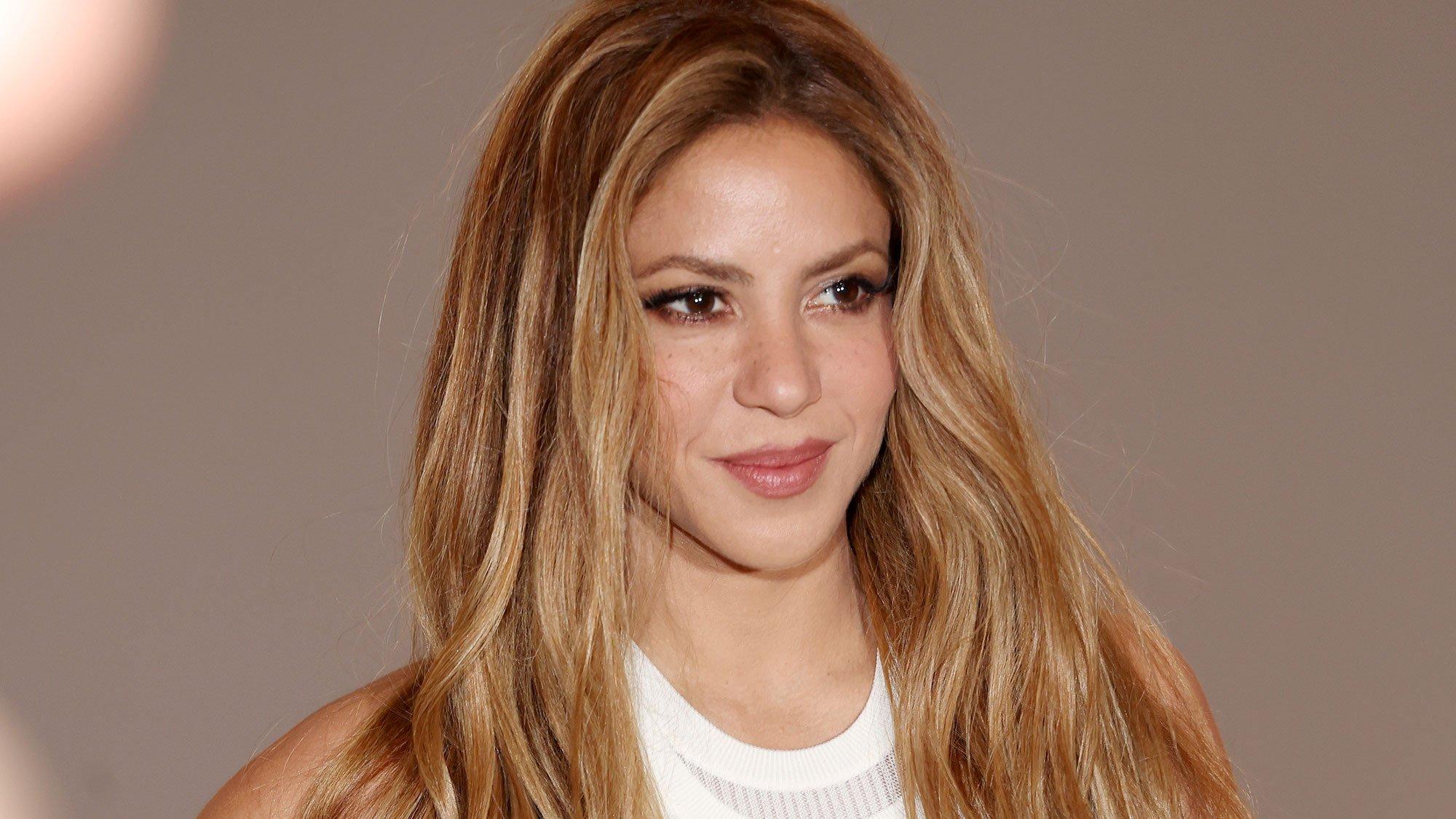
Photo: Pietro S. D'Aprano/Getty Images for Fendi
feature
Shakira's Road To 'Las Mujeres Ya No Lloran': How Overcoming A Breakup Opened A New Chapter In Her Artistry
Shakira's first album in seven years is out March 22, and very much of the moment with glossy Latin pop, reggaeton, bachata and corrido. The GRAMMY winner's path to this new chapter was long, filled with professional changes and heartbreak.
When Shakira’s "Bzrp Music Sessions, Vol. 53" was released in January of 2023; its success seemed like a freak incident, explainable as a perfect but isolated storm.
Their virulently catchy track — which happens to spill scalding tea on her breakup with retired Spanish soccer player Gerard Piqué — set streaming records and took home a Latin GRAMMY for Song Of The Year. Today, the song's success looks more like the first crashing wave of a massive comeback for Shakira.
The three-time GRAMMY winner followed her Bzrp Session with another hit single, "TQG," collaborating with Karol G. That song went to No. 1 on the Billboard Global 200, and the duo cleaned up at the Latin GRAMMYs.
In hindsight, all of this was a mere preamble to the announcement of Shakira's Las Mujeres Ya No Lloran (Women Don't Cry Anymore), due March 22. The album will be her first in seven years, but the sound is very much of the moment, leaning into a high-gloss urban Latin pop sound that delves in reggaeton, bachata and corrido.
The album is no comeback. With a star as big as Shakira — one who performed at the Super Bowl in 2020 and had her own exhibit at the GRAMMY Museum — it's hard to make the case that she ever left the public eye. Yet the Colombian superstar has put out only a trickle of singles since 2017, when she released her GRAMMY-winning album El Dorado. Prior to the BZRP session, her last major hits were in 2016 with "La Bicicleta," a collaboration with Carlos Vives, and "Chantaje," featuring Maluma, which went to No. 1 on the Billboard Hot Latin Songs.
It’s impossible to talk about this period of retreat, or her new album, without talking about the personal upheavals Shakira has gone through in recent years. In June of 2022, Shakira and Gerard Piqué, with whom she has two sons, publicly announced the end of their 11 year relationship. Starting with 2022’s "Monotonía," featuring Ozuna, nearly every song she has released since then deals directly with the split and the emotional turmoil she has felt because of it.
The singer and songwriter herself is not shying away from the fact that her music has been a therapeutic outlet. "I feel like in this moment of my life, which is probably one of the most difficult, darkest hours of my life, music has brought light," she told Elle in 2022.
Case in point: her Bizarrap session. "Someone should have taken my photo the day I worked on the 'Bizarrap Session 53,' a before and after. Because I went into the studio one way and left in a completely different way," Shakira told Mexican television channel Televisa. "He gave me this space, this opportunity to let it out and it really was a huge release, necessary for my own healing, for my own recovery process."
That feeling of catharsis continued in her work on Las Mujeres. "Making this body of work has been an alchemical process. While writing each song I was rebuilding myself. While singing them, my tears transformed into diamonds, and my vulnerability into strength," the artist said in a statement on Instagram.
Shakira is styling the album as a testament to resilience in the face of adversity, tapping into an understanding that her experiences have a broad resonance. While accepting Billboard’s 2023 Woman Of The Year award, Shakira discussed her "year of seismic change."
"I've felt more than ever — and very personally — what it is to be a woman," she said. "It's been a year where I've realized we women are stronger than we think, braver than we believed, more independent than we were taught to be."
Indeed, with strength and bravery, Shakira proceeded to channel her individual hurt into a message of universal empowerment. Ahead of her album release, she’s even more explicit about the details of her separation and the impact the relationship had on her career. "For a long time I put my career on hold, to be next to Gerard, so he could play football. There was a lot of sacrifice for love," recently told The Sunday Times.
As she told Billboard for her 2023 cover story, settling down in Barcelona with Piqué and their two children, far from music industry centers, made it difficult for her to work. "It was complicated logistically to get a collaborator there. I had to wait for agendas to coincide or for someone to deign to come," she explained.
Shakira has since relocated to Miami, a location that played a major role in making her new album possible.
One of the hallmarks of a true pop star is the ability to evolve with the culture without losing their identity. Over decades, and with each release, Shakira has broken a barrier or risen above an obstacle to succeed beyond expectations – whether it’s leading the first Spanish-language broadcast on MTV with her 2000 "Unplugged" concert, or learning English to write her own crossover pop debut. Each move has felt authentic.
It is not an easy task, but Shakira accomplishes this alchemy beautifully every few album cycles, starting with her debut as an alt-leaning, brunette singer/songwriter in the mid '90s. At the turn of the millennium, she made the jump to international fame with a cascade of golden curls and Laundry Service, the English-language album that capitalized on the first wave of crossover Latin pop. She closed out the decade in a whirl of high-gloss dance pop with the Pharell produced She Wolf. Along the way, there was one platinum selling album after another and the No. 1 hit "Hips Don’t Lie," among several Top 10 singles, setting the stage for her to blaze through much of the 2010s.
Shakira is well-aware of how hard she has had to work even after crossover success.
In 2019, she told Billboard, "This whole new world had opened up to me, and with it came so many great opportunities, but I continued to pursue impossible goals such as making a song like 'Hips Don’t Lie,' for example—that had a Colombian cumbia and a mention of Barranquilla in the middle of it—play on American radio. I remember I said to [then Sony Music Chairman] Donny Ienner, ‘You have to trust me on this one. This is going to happen, this song is going to blow up.’"
With El Dorado, she caught the second wave of Latin pop crossover, the one tipped off by Luis Fonsi’s now-infamous 2017 earworm "Despacito." El Dorado, is one of Shakira’s more Latin leaning albums in the long history of her bicultural and bilingual music career. The songs are sung largely in Spanish and her choice of features on the album are almost entirely Latin pop and reggaeton artists: Maluma, Nicky Jam, Prince Royce and Carlos Vives. The album's May 2017 release coincided with a rising global interest in reggaeton.
Shakira wasn’t following a trend; she was just in touch with the moment as usual. She released "Chantaje" months before "Despacito," and "Bicicleta," her song with Carlos Vives, which combines elements of reggaeton and vallenato, came out in 2016.
With the continued mainstream global success of Latin artists, Shakira may no longer see a need to release an English-language album for every album in her mother tongue. Las Mujeres Ya No Lloran breaks with tradition in that it is her second Spanish-language album in a row. It's also loaded with features from the world of Latin music, including Ozuna, Rauw Alejandro, Manuel Turizo, and Karol G. The moment could not be better for an album that explores forward looking pop reggaeton, assisted by some of the brightest young stars in the genre.
If the past is any indicator, this era is going to be another step up for the artist. Beyond the album release, Shakira is teasing another tour. As she told Billboard, "I think this will be the tour of my life. I’m very excited. Just think, I had my foot on the brakes. Now I’m pressing on the accelerator — hard."
Every Year Is The Year Of Shakira: 10 Songs That Prove She's Always Been A Superstar
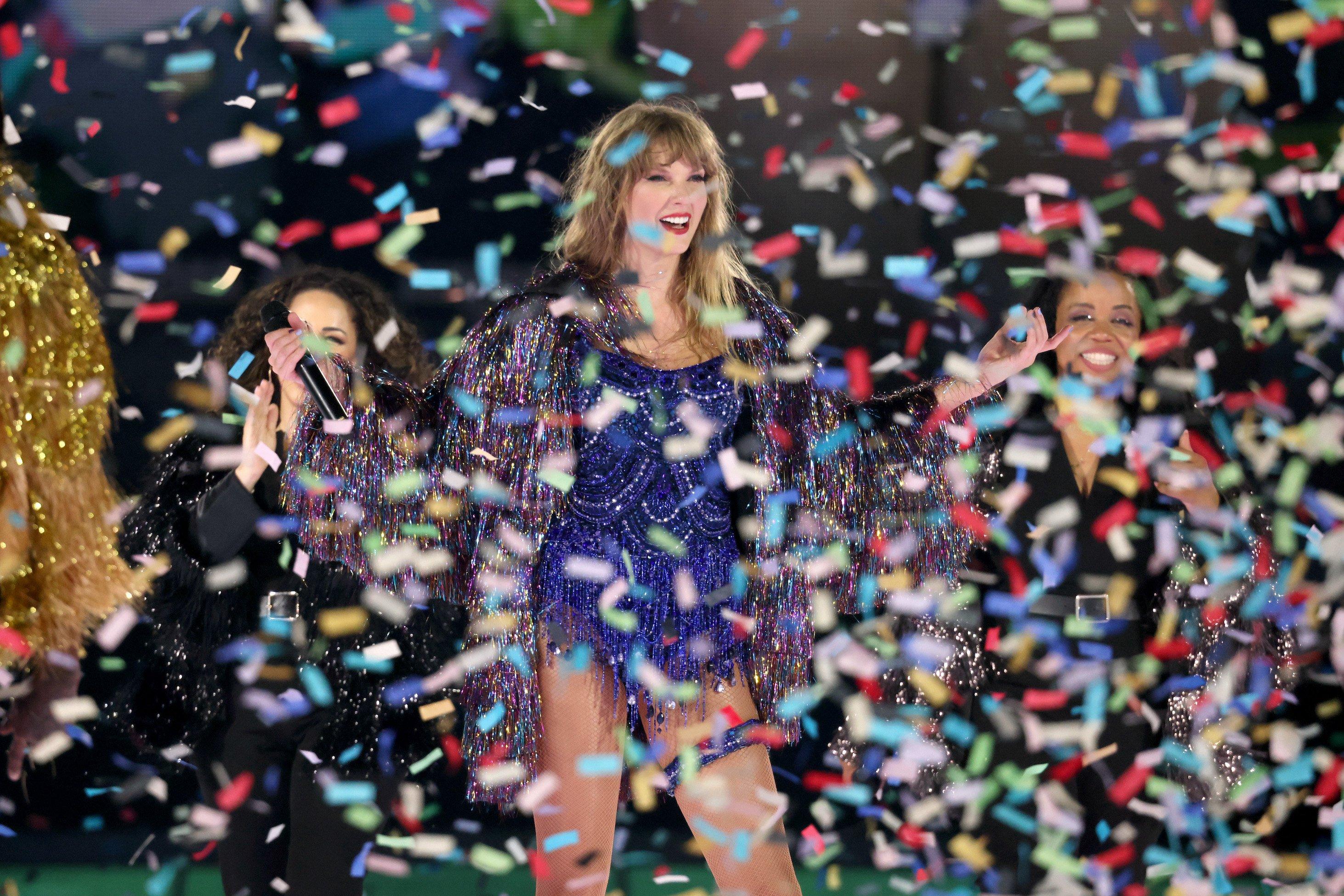
Photo: John Shearer/TAS23/Getty Images for TAS Rights Management
list
New Year's Songs: 16 Tracks To Give You A Fresh Start In 2024, From The Beatles To Taylor Swift
Whether you're looking to vibe with J Balvin or roar with Katy Perry, let these tracks welcome you to a prosperous and hopeful new year.
The beginning of a new year often results in moments of reflection as well as anticipation about what lies ahead. And with the myriad of feelings that ensue upon New Year's Eve, music serves as a powerful source for both introspection and inspiration.
There are countless songs that give listeners a chance to reflect and resonate with the possibilities of what's yet to come. Whether it's the pulsingly hopeful beat of Jamie xx's "I Know There's Gonna Be (Good Times)," the inspiring narrative of The Notorious B.I.G's "Juicy," or Elton John's pumped-up "I'm Still Standing," a good soundtrack is the perfect catalyst for starting a new year on the right note.
As you envision what the coming year has in store, enjoy this playlist from GRAMMY.com — curated not just to celebrate the moment the clock strikes 12, but to infuse the coming year with inspiration and cheer.
79.5 — "B.D.F.Q"
Inspired by singer Kate Mattison's experiences in Detroit, 79,5's "B.D.F.Q." is about perseverance in the face of a music industry marred by misogyny. Short for "B—, Don't F—ing Quit," "B.D.F.Q." amplifies a mood of independence and strength with the declaration, "They! Don't mean a thing/ Don't mean a thing, just do your thing!" While the message is timeless, "B.D.F.Q." will certainly amp you up for any challenges the new year presents.
The Beatles — "Here Comes The Sun"
Whether you spin the 1969 original or the reinvigorated 2019 mix, the Beatles' "Here Comes The Sun," remains a classic symbol of continuation and hope. A track from the Fab Four's iconic Abbey Road album, this George Harrison composition is celebrated for its uplifting melody and serene lyrics that playfully describe a new dawn and brighter days ahead.
Elton John — "I'm Still Standing"
Elton John delivered an upbeat ode to durability and the ability to bounce back with "I'm Still Standing," a 1983 track that resonates 40 years on. Between its catchy melody and John's energetic performance (particularly in the beach-set music video), the song conveys a triumphant message about overcoming challenges and emerging stronger.
"Hamilton" — "My Shot"
Of the many dynamic numbers in Lin-Manuel Miranda's renowned musical "Hamilton," "My Shot" is arguably the most inspirational and universal. A powerfully charged manifesto that embodies ambition and determination — delivered with an electrifying blend of hip-hop and theatrical flair — "My Shot" celebrates seizing opportunities and making a mark. It's a welcome New Year's song choice for those compelled to channel their inner strength and embrace new challenges in the year ahead.
J Balvin — "6 AM" feat. Farruko
This vibrant reggaeton track from J Balvin's 2013 album La Familia encapsulates the spirit of spontaneity. Its infectious beat and catchy lyrics manifest as a celebration of lively nights and the adventures that unfold in the early after hours — hence, the 6 a.m. title. This one's for the night owls, who may see the sun rise at the turn of the new year.
Jamie xx — "I Know There's Gonna Be (Good Times)" feat. Young Thug, Popcaan
"I Know There's Gonna Be (Good Times)" by Jamie xx is as upbeat and optimistic as hip-hop tracks come. Featuring Young Thug and Popcaan, the 2015 track melds elements of dance and reggae for an infectious ode to good times ahead — an enduring NYE sentiment.
Jimmy Chamberlin Complex — "Life Begins Again"
The title track of their 2005 album, "Life Begins Again" is an intricate and evocative composition that blends elements of jazz and rock with a bit of emo sentiment. The track showcases Jimmy Chamberlin's exceptional drumming prowess while promising that life is cyclical — every day can be the first of your life with the right attitude.
John Lennon — "Just Like Starting Over"
With themes of rekindling love and starting anew, John Lennon's "[Just Like] Starting Over" is a fitting tribute to fresh starts and the enduring power of renewal in all aspects of life. And as the final single released while he was alive, it's a bittersweet testament to Lennon's enduring legacy.
Katy Perry — "Roar"
Katy Perry's "Roar," from her 2013 album Prism, is a proud declaration of self-empowerment and finding one's voice. An electrifying track with a booming chorus and spirited lyrics, it embodies the journey from silence to strength. Its message of embracing one's true self and speaking out makes it an inspiring celebration of new beginnings.
Lisa LeBlanc — "Pourquoi faire aujourd'hui"
For those looking to give themselves a little break as the new year begins, Lisa LeBlanc's "Pourquoi faire aujourd'hui" may be the song for you. A single from her 2021 album Chiac Disco, the energetic, disco-inspired French language track features playful lyrics about procrastination, with its titular line asking, "Why do today what you could do tomorrow?" — starting the year off in laid-back fashion. If tu ne parles pas Français, LeBlanc's catchy dance beats are fuel for a joyful New Year's Eve atmosphere.
Lizzo — "Good As Hell"
Like many of Lizzo's songs, "Good as Hell" captures a vibrant, empowering spirit. It celebrates self-care and resilience in the face of adversity, blending a lively rhythm with Lizzo's dynamic vocals. Its uplifting lyrics and infectious energy encourage a sense of confidence and self-appreciation — a powerful anthem of positivity any time of the year.
Nina Simone — "Feeling Good"
A timeless classic first made famous by Nina Simone, "Feeling Good" is a powerful anthem of rejuvenation and hope. Simone's jazz-infused rendition was released in 1965; its resolute delivery captures a spirit of personal transformation and empowerment, offering an enduring sentiment going into the new year: "It's a new dawn/ It's a new day/ It's a new life for me, ooh/ And I'm feeling good."
Notorious B.I.G. — "Juicy"
Although The Notorious B.I.G.'s "Juicy" is a personal account of the late rapper's rise to the top, the song encapsulates a spirit of triumph that can inspire anyone with a dream. From its bouncy beat to the iconic "If you don't know, now you know" hook, "Juicy" will have you reaching for the stars.
Otis Redding & Carla Thomas — "New Year's Resolution"
Memphis legends Otis Redding and Carla Thomas' aptly titled 1967 album King & Queen is notable for being the final studio release before Redding passed away that December. The album also spawned a NYE classic: "New Year's Resolution." With lyrics that explore the concept of making resolutions and embracing change in the new year. While the song lacks Redding's trademark soulful wail, "New Year's Resolution" is temperate and contemplative — a reprieve from the let-it-all-out powerful Stax sound to ease your way into the new year.
Peter Cat Recording Co. — "Portrait of a Time"
Both modern and nostalgic, Peter Cat Recording Co.'s "Portrait of a Time" blends jazz, and indie rock for an eclectic and nostalgic, introspective jam. The song carries a reflective mood of contemplation and transition, with lyrics that encourage leaving "confusion and darkening clouds" in the past and hopping in the Lamborghini of life for a new wild ride.
Taylor Swift — "New Year's Day"
After all of the bold, empowered statements on Taylor Swift's 2017 album reputation, she closes the LP with a tender, piano-driven ballad that captures the quiet intimacy and hopeful sentiments of a new year. Aptly titled "New Year's Day," the song's reflective and heartfelt lyrics contemplate love and loyalty found in life's fleeting moments. Swift's delicate vocal delivery and the track's gentle melody evoke a sense of warmth and enduring connection, making it a poignant choice to embrace the new year with a sense of closeness.
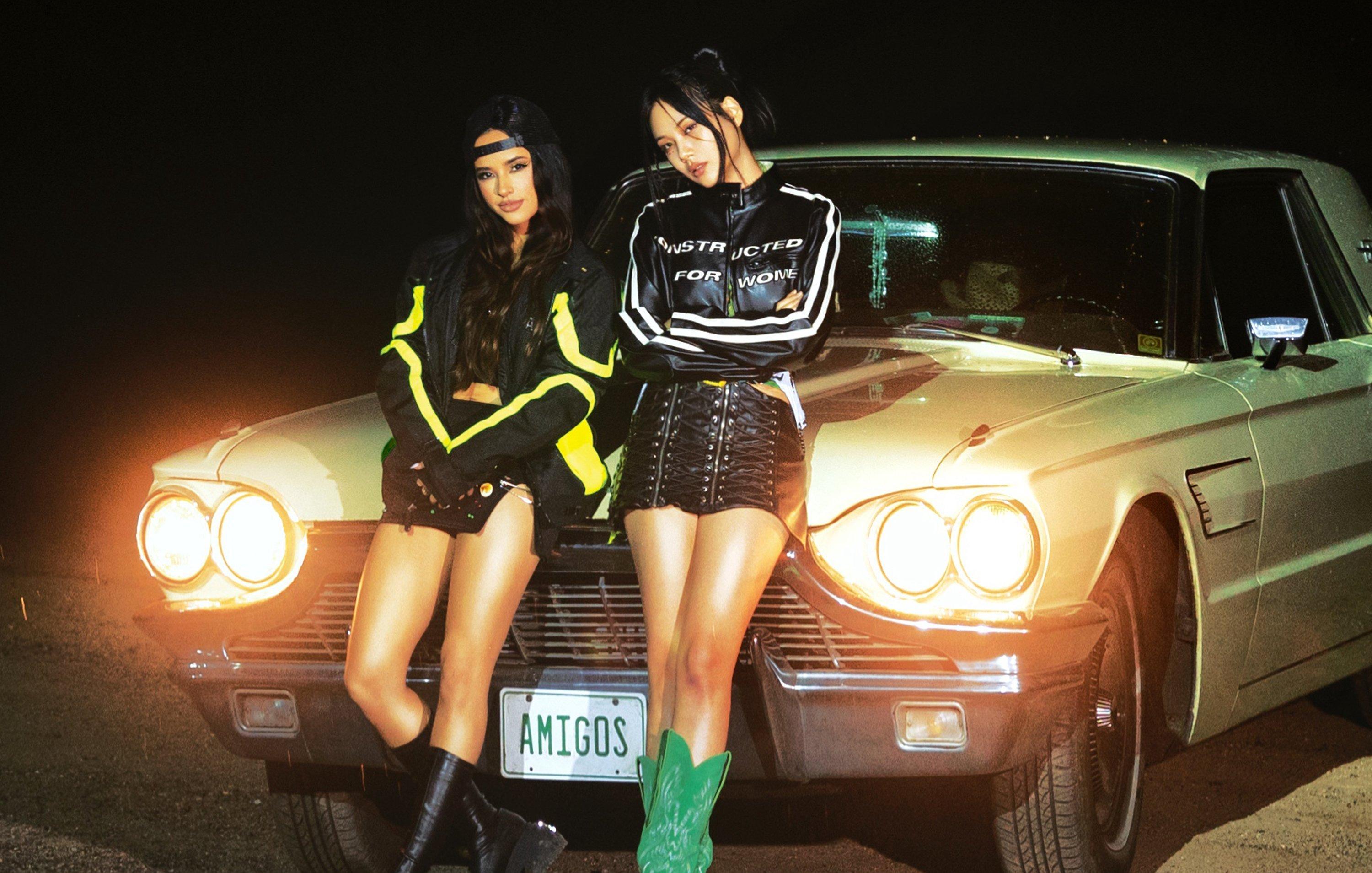
Photo: Amy Lee
news
New Music Friday: Listen To New Songs From Andre 3000, Drake, Ozuna & More
From long-awaited debut albums to surprising singles, listen to these six new releases from Nov. 17.
With Thanksgiving around the corner, this New Music Friday offers us a feast of new sounds from some of the music industry’s biggest artists.
Country star Maren Morris teamed up with Teddy Swims for a passionate duet version of his song "Some Things I'll Never Know," while Steve Aoki & ERNEST paired up for an energetic dance/country crossver, "Us," from Aoki’s HiROQUEST 2: Double Helix.
American band Bleachers unleash their wild side with "Alma Matter," from their upcoming self-titled album dropping March 8, 2024. Meanwhile, alternative rock band Bad Suns released their catchy, six-track EP Infinite Joy. Across the pond, long-time British rockers Madness released their 13th album, Theatre Of the Absurd Presents C’Est La Vie.
With sultry sounds from R&B songstress Ari Lennox to mellow, indie rhythms from Dermot Kennedy to upbeat, radiant vibes from the duo Surfaces, this Friday brings a kaleidoscope of sounds from across every genre.
Along with the slew of releases mentioned above, press play on releases from the likes of André 3000, Drake, Ozuna, Lil Wayne and 2 Chainz, Danny Brown, and Bibi and Becky G — and be sure to add some new sounds to your rotation.
André 3000 - New Blue Sun
If you’ve seen Andre 3000’s impromptu flute performances in the past few years, then the GRAMMY winner's new sound won’t come as a shock. On his eight-track debut solo album New Blue Sun, the Outkast member experiments with wind instruments and percussion, creating serene and melodic compositions.
Across eight elaborately titled tracks — "I swear, I Really Wanted To Make A "Rap" Album But This Is Literally The Way The Wind Blew Me This Time" and "That Night In Hawaii When I Turned Into A Panther And Started Making These Low Registered Purring Tones That I Couldn’t Control… Shyt Was Wild," — Andre details his artistic journey and the possibility of returning to rap music. Because, as Andre has told numerous outlets, New Blue Sun is not a rap album.
"I get beats all the time. I try to write all the time. People think, Oh, man, he’s just sitting on raps, or he’s just holding these raps hostage. I ain’t got no raps like that," he told GQ.
In the future, fans might see 3000 return to the rap universe but in the meantime, let’s enjoy the ambience of the blue sun.
Drake - For All The Dogs Scary Hours Edition
It’s not Scorpio season without a release from the scorpion king himself, Drake. In the latest installment of his Scary Hours series, Drake brought in a heavy-hitter lineup of producers including Lil Yatchy and Alchemist.
With songs surrounding themes of betrayal and broken trust (an the less-than-subtle chant "F— My Ex" more than 10 times in one song), For All The Dogs Scary Hours Edition shows how deep the Certified Lover Boy is in his feelings.
Drake brings out his Swiftie side in the track, "Red Button," shouting out Taylor Swift with lyrics "Taylor Swift the only n—- that I ever rated/ Only one could make me drop the album just a little later/ Rest of y’all, I treat you like you never made it." Seems that the big-ups and grudges heard on October's For All The Dogs translate to Scary Hours, too.
His song "Evil Ways" features J. Cole, increasing anticipation for their joint tour, which was announced on Nov. 13.
Ozuna - Cosmo
After receiving a nod for Best Reggaeton Performance and performing with David Guetta at the 2023 Latin GRAMMYs, Puerto Rican Singer Ozuna dropped his sixth album, Cosmo. Filled with soon-to-be dance floor staples, Cosmo highlights Ozuna's versatility.
Songs like "El Pin" and "La Chulita" are full of infectious dance and Afrobeats influences, yet stay true to his reggaeton roots. The 15-track record also includes collaborations with Jhayco, Chenco Corleone, Anuel and David Guetta.
"When you think of a colorful image, you think of youth. When people listen to this album, I want them to take it seriously," Ozuna said in an interview with the Fader. "People want to hear what’s real, what’s clear-cut, in black and white.”
The goal, he continued, is to allow "people to know who the real Ozuna is."
2 Chainz, Lil Wayne - Welcome 2 Collegrove
Lil Wayne and 2 Chainz have joined forces once again to release their second joint album, Welcome 2 Collegrove. The album’s title is a melding of 2 Chainz's hometown of College Park, Georgia, with Lil Wayne’s Hollygrove, Louisiana.
Welcome 2 Collegrove includes features from a cross-section of hip-hop and R&B greats, including Usher, 21 Savage, Rick Ross, Benny The Butcher and Fabolous. Tracks like "Presha" and "Long Story Short" bring back the duo’s classic rap sound from their 2016 project COLLEGROVE, and show their ability to create hip-hop anthems. The special guest artists add even more depth to their songs.
Danny Brown - Quaranta
After a four year break, Detroit rapper Danny Brown is back with his seventh album, Quaranta. A departure from his earlier, more club-centric music, the 11-track album offers a new perspective in Brown’s life.
Quaranta is a turning point in Brown's musical journey, where he reflects on themes of regret, self-destructive behavior, and growth. While songs like "Ain’t My Concern" and "Celibate" still include his signature flair of fast, high-pitched verses, this album takes on a more mature and introspective route.
Bibi feat. Becky G - "Amigos"
On "Amigos," South Korean singer Bibi teamed up with Latin star Becky G for a multicultural but ever-relatable track that focuses on being hung up on past lovers despite having someone new in their life. "I know we had a good time and that you always want more / But if my boyfriend calls, we’re just friends, nothing more," they sing in Spanish.
"Amigos" is rife with hip-hop influences — a genre Bibi loves.
"Expressing oneself through lyrics is so real and genuine," BIBI told AllKPop. "As I’m someone who wasn’t necessarily gifted with natural musical talent — I didn’t even know the difference between boom bap or trap beats until way later. I think the other factors of music organically followed as I grew as an artist."
15 Must-Hear Albums This November: Dolly Parton, Jung Kook, Marshmello & More
